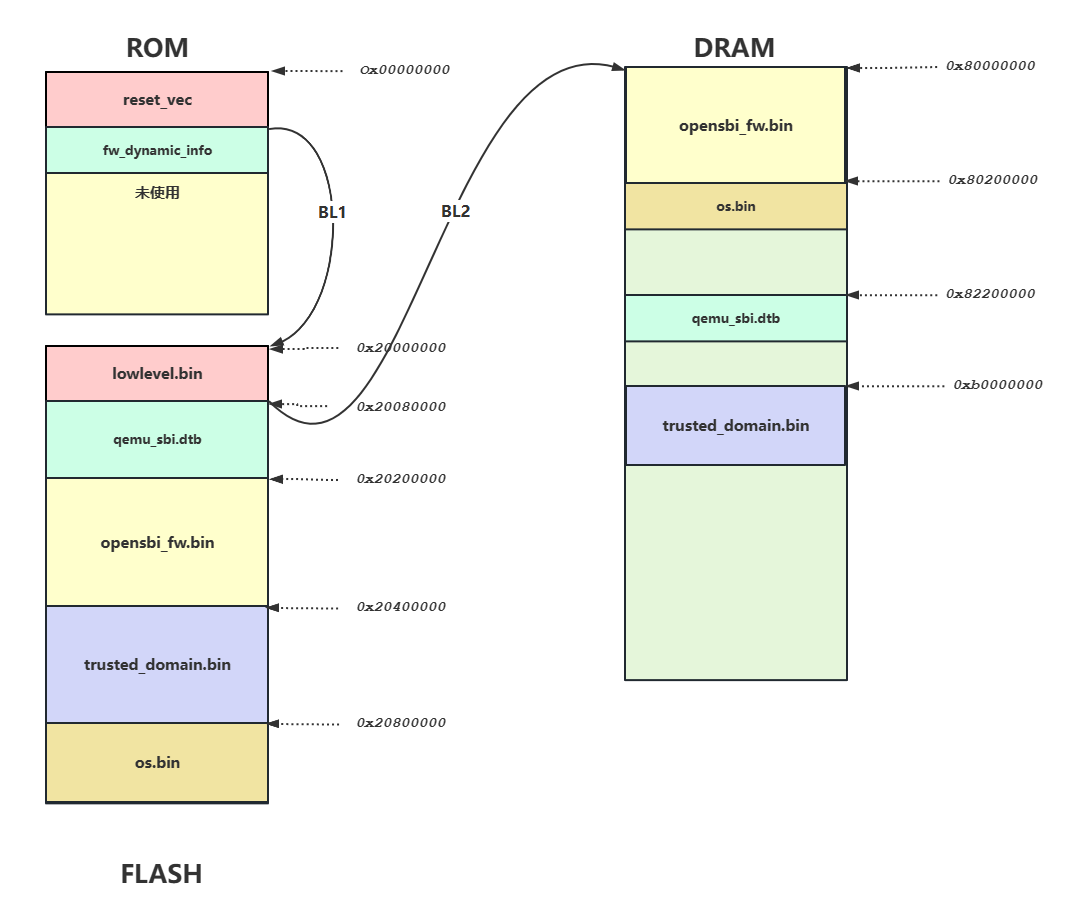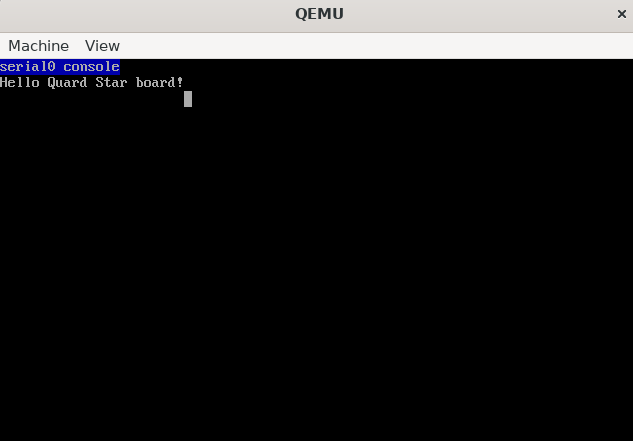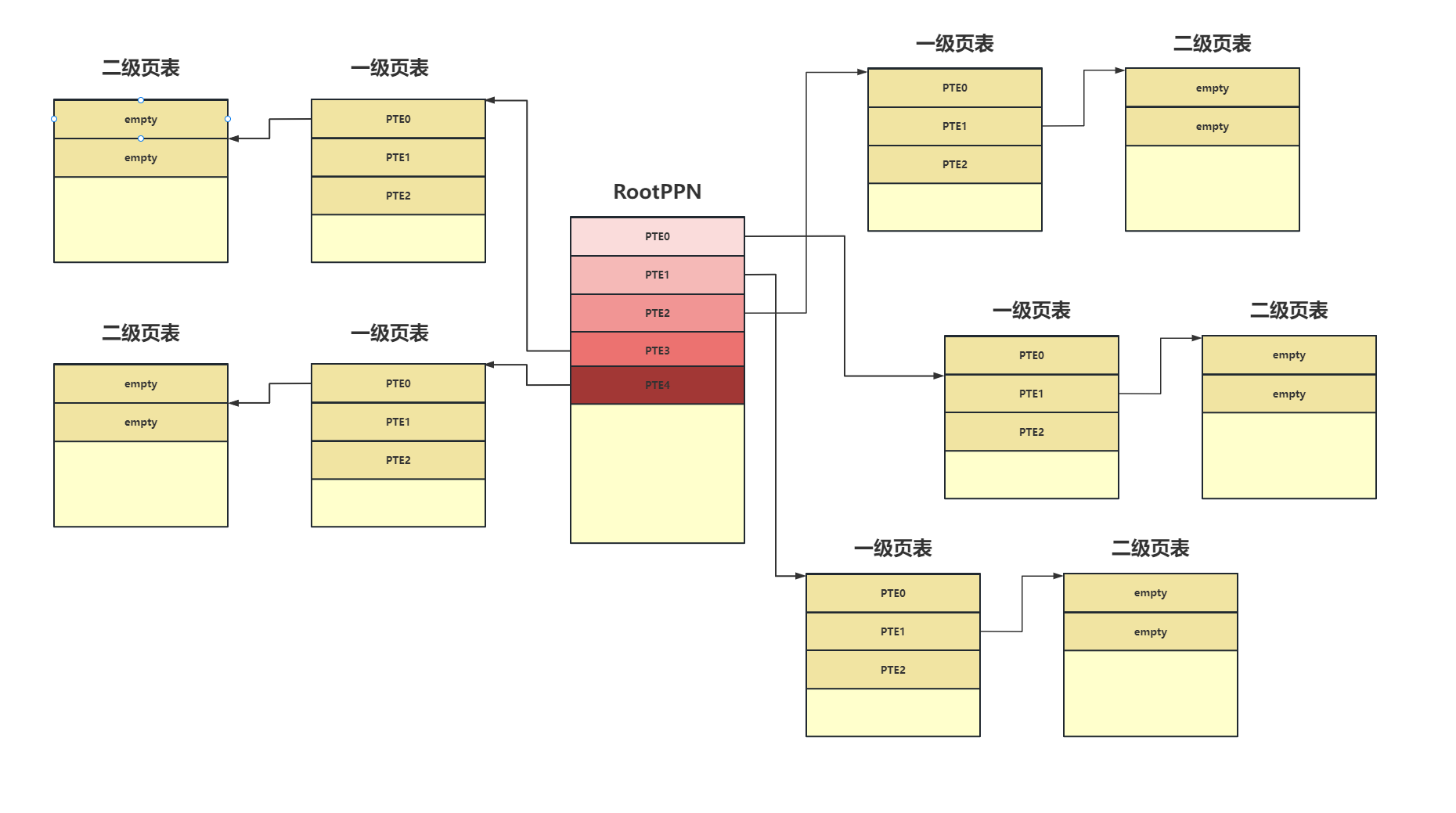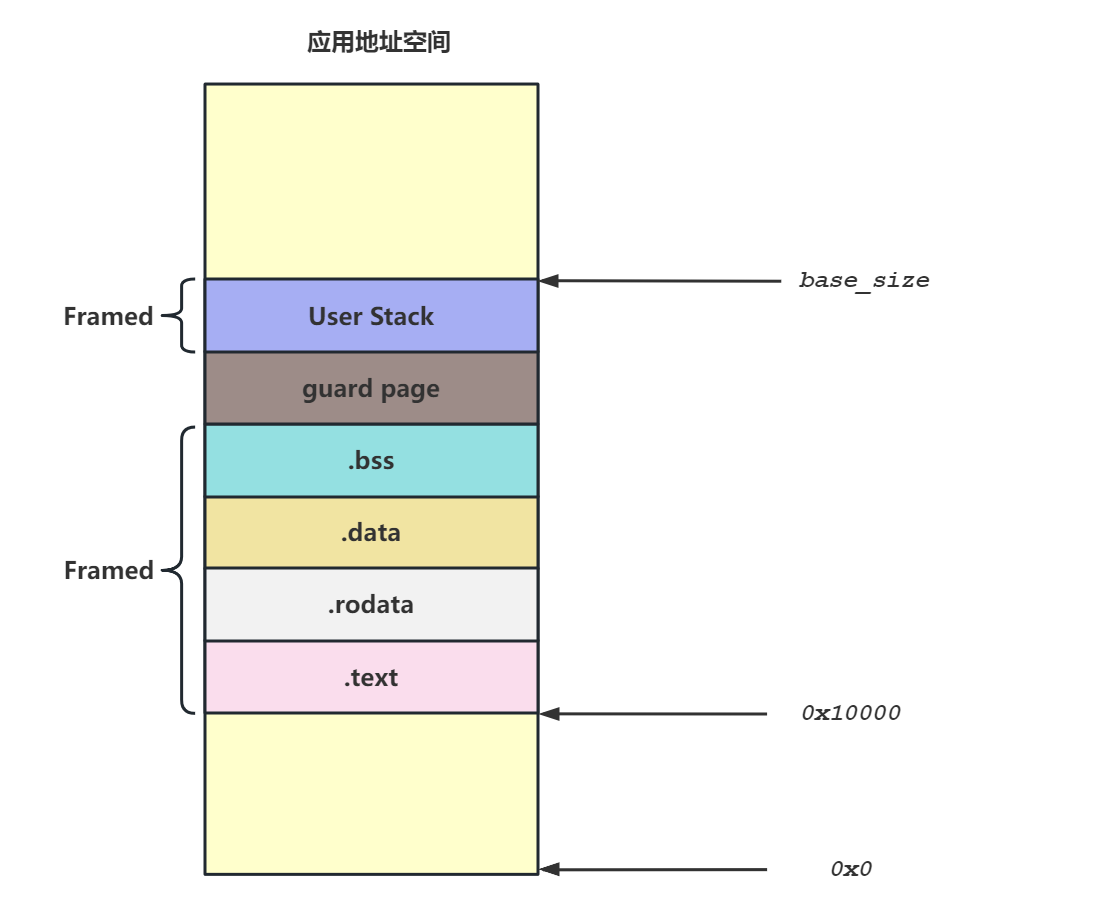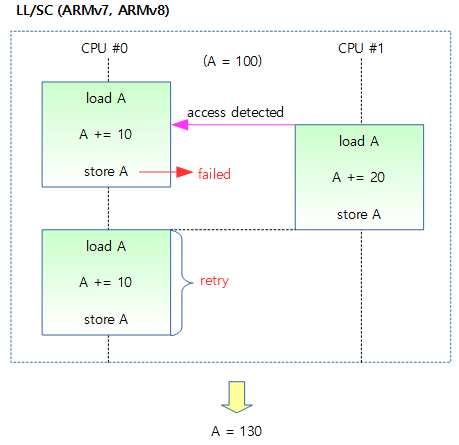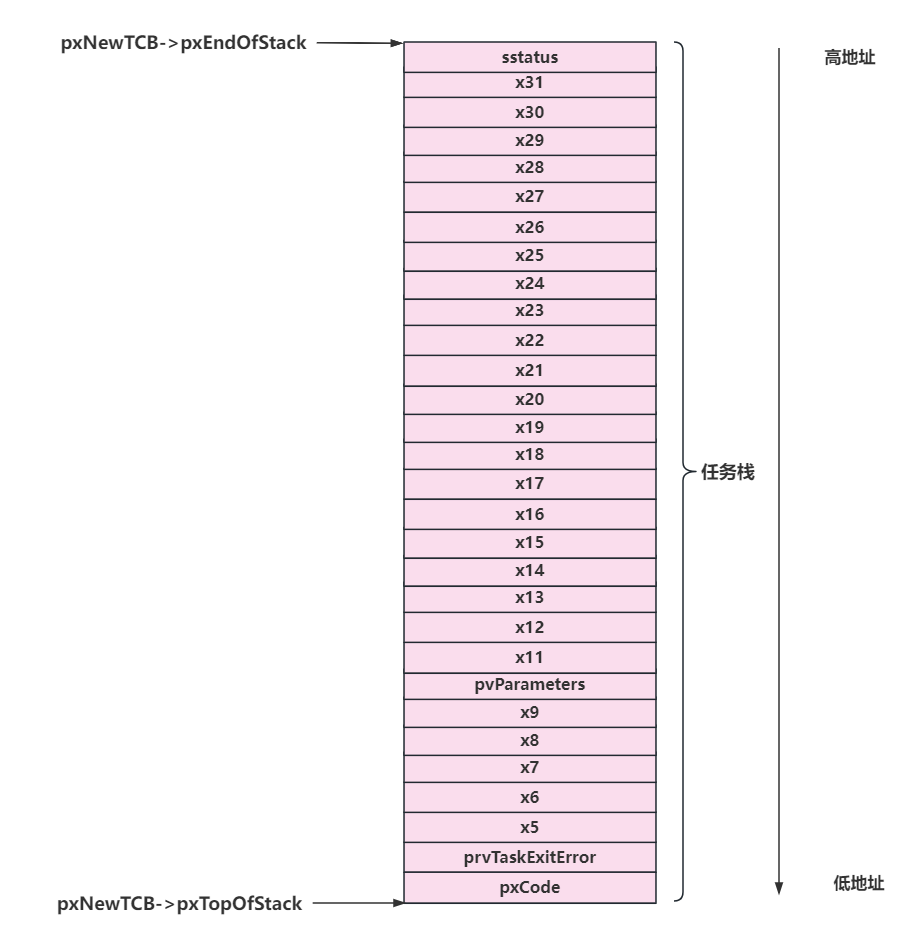1. 可变参数
1.1 可变参数的使用
在实现printf函数之前,我们必须先了解以下在可变参数是如何实现的,在C语言标准库中,可变参数是通过如下几个函数或者宏定义来实现的:
va_list;
va_start(ap,v);
va_arg(ap,type)
va_end(ap)
|
先举一个在x86架构下使用可变参数的例子:
#include <stdio.h>
#include <stdarg.h>
void printStrings(int count, ...) {
va_list args;
va_start(args, count);
for (int i = 0; i < count; i++) {
const char* str = va_arg(args, const char*);
printf("%s\n", str);
}
va_end(args);
}
int main() {
printStrings(3, "Hello", "World", "!");
return 0;
}
|
执行上面的代码就会打印:
va_list的使用方法:
首先在函数中定义一个具有va_list型的变量,这个变量是指向参数的指针。
然后用va_start宏初始化变量刚定义的va_list变量,使其指向第一个可变参数的地址。
然后va_arg返回可变参数,va_arg的第二个参数是你要返回的参数的类型(如果多个可变参数,依次调用va_arg获取各个参数)。
最后使用va_end宏结束可变参数的获取。
在使用va_list是应该注意以下问题:
可变参数的类型和个数完全由代码控制,它并不能智能地识别不同参数的个数和类型,正因为如此所以在上面的测试打印代码中我们需要传入一个参数的count值:3
如果我们不需要一一详解每个参数,只需要将可变列表拷贝到某个缓冲区,可以用vsprintf函数。
因为编译器对可变参数的函数原型检查不够严格,对编程查错不利,不利于我们写出高质量的代码
1.2 可变参数在不同架构下的体现
首先我们来看一下在i386架构下的一个可变参数的实现:
typedef char* va_list;
#define va_start(ap,v) (ap = (va_list)&v )
#define va_arg(ap,t) (*(t*)(ap += sizeof(t *)))
#define va_end(ap) (ap = (va_list)0)
|
在32位x86架构下ABI的规定中函数的参数会被依次入栈,从右往左依次压入栈中,因此可变参数的实现可以以上面的形式实现,va_start指向的是第一个参数的地址,由于参数依次排列在栈中,所以其余的参数可以依次取出来,32位的栈帧的单元大小是4字节。
所以上面的测试代码在i386架构下参数的排列方式如下:参数1就是 count:3
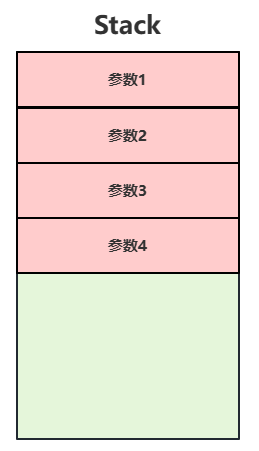
我们来做个测试验证以下:
#include "stdio.h"
typedef void* Va_list;
#define Va_start(ap,v) (ap = (Va_list)&v )
#define Va_arg(ap,t) (*(t*)(ap += sizeof(t *)))
#define Va_end(ap) (ap = (Va_list)0)
void print_str(int count, ...) {
#if 1
void* ap = (void*)&count;
printf("%d\n", *(int *)ap);
ap += sizeof(char**);
printf("%s\n", *(char**)ap);
ap += sizeof(char**);
printf("%s\n", *(char**)ap);
ap += sizeof(char**);
printf("%s\n", *(char**)ap);
#else
void* ap = (void*)&fmt;
printf("%s\n", *(int*)ap);
ap += sizeof(char**) * 6;
printf("%s\n", *(char**)ap);
ap += sizeof(char**);
printf("%s\n", *(char**)ap);
ap += sizeof(char**);
printf("%s\n", *(char**)ap);
#endif
}
int main() {
int s1 = 3;
char * s2 = "world";
char * s3 = "fuck you";
char * s4 = "riscv";
print_str(s1,s2,s3,s4);
return 0;
}
|
编译后用qemu-i386运行:
gcc -O0 -m32 va_list.c -o i386.out
qemu-i386 i386.out
|
结果如下:

可以看见正常答应所有的参数,证明在i386架构下参数是依次排列在栈中的,至于我为什么要打印“fuck you riscv”等下就会知道啦哈哈哈。
所以在32为X86架构下我们可以自己实现一个可变参数宏,但是我们的quard_star是64位的riscv架构,函数参数在栈中的排布是和编译器息息相关的,为了方便测试,我们建立如下文件夹:

其中va_list.c做了一点修改:
#include "stdio.h"
void print_str(const char * fmt, ...) {
#if 1
void* ap = (void*)&fmt;
printf("%s\n", *(char**)ap);
ap += sizeof(char**);
printf("%s\n", *(char**)ap);
ap += sizeof(char**);
printf("%s\n", *(char**)ap);
ap += sizeof(char**);
printf("%s\n", *(char**)ap);
#else
void* ap = (void*)&fmt;
printf("%s\n", *(char**)ap);
ap += sizeof(char**) * 6;
printf("%s\n", *(char**)ap);
ap += sizeof(char**);
printf("%s\n", *(char**)ap);
ap += sizeof(char**);
printf("%s\n", *(char**)ap);
#endif
}
int main() {
char * s1 = "hello";
char * s2 = "world";
char * s3 = "fuck you";
char * s4 = "riscv";
print_str(s1,s2,s3,s4);
return 0;
}
|
test.c先不管,build.sh的内容如下:
gcc -O0 -m32 va_list.c -o i386.out
riscv64-unknown-elf-gcc -O0 va_list.c -o riscv64.out
riscv32-unknown-elf-gcc -O0 va_list.c -o riscv32.out
objdump -D i386.out > i386_debug.txt
riscv64-unknown-elf-objdump -D riscv64.out > riscv64_debug.txt
riscv32-unknown-elf-objdump -D riscv32.out > riscv32_debug.txt
# qemu-i386 i386.out
# qemu-riscv64 riscv64.out
# qemu-riscv32 riscv32.out
|
可以看见会分别把va_list.c编译成I386架构、riscv32架构、riscv64架构的可执行程序,然后将可执行程序反汇编输出到各自的.txt文件中。
我们来qemu-i386 i386.out,可以看见正常输出没问题:

如果riscv64架构下编译器也把函数参数一个个依次排放在栈中,那么执行的结果肯定和i386一样,ok,我们qemu-riscv64 riscv64.out运行一下。

可以看见除了第一个参数正常输出了,后面的直接报错了。这是为啥呢,我们来看一下生成的汇编代码,打开riscv64_debug.txt,找到main函数和print_str函数

可以看见在main函数中将4个函数参数分别放进了a0,a1,a2,a3寄存器,这是riscv的ABI规定的:
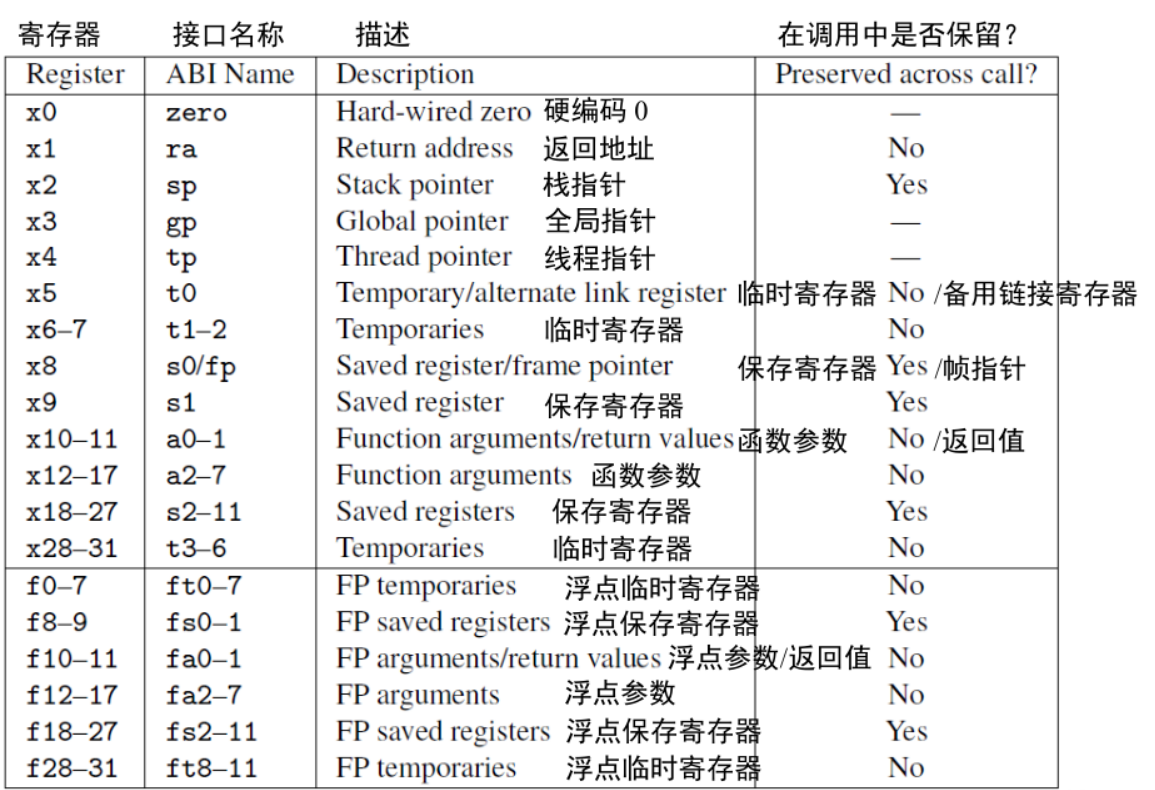
a0~a7用于函数传参,然后我们找到print_str函数:

在print_str函数的栈帧中,可以看见编译器将a0放在了栈中一个奇怪的位置,这里的a0中存的就是第一个参数,后面三个参数的值是依次排放的,ok我们来做一下测试:
#include "stdio.h"
void print_str(const char * fmt, ...) {
#if 0
void* ap = (void*)&fmt;
printf("%s\n", *(char**)ap);
ap += sizeof(char**);
printf("%s\n", *(char**)ap);
ap += sizeof(char**);
printf("%s\n", *(char**)ap);
ap += sizeof(char**);
printf("%s\n", *(char**)ap);
#else
void* ap = (void*)&fmt;
printf("%s\n", *(char**)ap);
ap += sizeof(char**) * 6;
printf("%s\n", *(char**)ap);
ap += sizeof(char**);
printf("%s\n", *(char**)ap);
ap += sizeof(char**);
printf("%s\n", *(char**)ap);
#endif
}
int main() {
char * s1 = "hello";
char * s2 = "world";
char * s3 = "fuck you";
char * s4 = "riscv";
print_str(s1,s2,s3,s4);
return 0;
}
|
在上面的代码中我在获取第一个参数后,在获取第二个参数时:ap += sizeof(char**) * 6;,将偏移量乘了6,那是因为在上面汇编代码中,我们发现a0和a1在栈中的偏移量是48个字节,在64位系统中栈帧每个单元为8个字节,因此乘以六刚刚好可以访问到。运行看一下结果:

正常输出没问题,因此在riscv64下编译器有自己的一套存放参数的方式,我无法自己实现一个类似i386架构下的可变参数宏,不知道写编译器的人做了哪些操作,我去看源码里riscv架构也没定义va_list宏。可以看看这篇博客:
编程参考 - va_list的定义问题_va_list 头文件_夜流冰的博客-CSDN博客
2. 实现printf函数
由于printf函数需要用到可变参数,但是上面的分析中不知道如何在riscv64下实现自己的va_list系列的宏,那我们就只有使用编译器提供的了
先看一下os目录下新增了哪些文件:
timer@DESKTOP-JI9EVEH:~/quard-star/os$ ls
Makefile entry.S main.c os.h os.ld printf.c sbi.c sbi.h
|
os.h:用extern声明了两个函数,包含了<stdarg.h>头文件,这里有可变参数相关的宏
#ifndef __OS_H__
#define __OS_H__
#include <stddef.h>
#include <stdarg.h>
extern int printf(const char* s, ...);
extern void panic(char *s);
extern void sbi_console_putchar(int ch);
#endif
|
printf.c:
#include "os.h"
void uart_puts(char *s)
{
while (*s) {
sbi_console_putchar(*s++);
}
}
static int _vsnprintf(char * out, size_t n, const char* s, va_list vl)
{
int format = 0;
int longarg = 0;
size_t pos = 0;
for (; *s; s++) {
if (format) {
switch(*s) {
case 'l': {
longarg = 1;
break;
}
case 'p': {
longarg = 1;
if (out && pos < n) {
out[pos] = '0';
}
pos++;
if (out && pos < n) {
out[pos] = 'x';
}
pos++;
}
case 'x': {
long num = longarg ? va_arg(vl, long) : va_arg(vl, int);
int hexdigits = 2*(longarg ? sizeof(long) : sizeof(int))-1;
for(int i = hexdigits; i >= 0; i--) {
int d = (num >> (4*i)) & 0xF;
if (out && pos < n) {
out[pos] = (d < 10 ? '0'+d : 'a'+d-10);
}
pos++;
}
longarg = 0;
format = 0;
break;
}
case 'd': {
long num = longarg ? va_arg(vl, long) : va_arg(vl, int);
if (num < 0) {
num = -num;
if (out && pos < n) {
out[pos] = '-';
}
pos++;
}
long digits = 1;
for (long nn = num; nn /= 10; digits++);
for (int i = digits-1; i >= 0; i--) {
if (out && pos + i < n) {
out[pos + i] = '0' + (num % 10);
}
num /= 10;
}
pos += digits;
longarg = 0;
format = 0;
break;
}
case 's': {
const char* s2 = va_arg(vl, const char*);
while (*s2) {
if (out && pos < n) {
out[pos] = *s2;
}
pos++;
s2++;
}
longarg = 0;
format = 0;
break;
}
case 'c': {
if (out && pos < n) {
out[pos] = (char)va_arg(vl,int);
}
pos++;
longarg = 0;
format = 0;
break;
}
default:
break;
}
} else if (*s == '%') {
format = 1;
} else {
if (out && pos < n) {
out[pos] = *s;
}
pos++;
}
}
if (out && pos < n) {
out[pos] = 0;
} else if (out && n) {
out[n-1] = 0;
}
return pos;
}
static char out_buf[1000];
static int _vprintf(const char* s, va_list vl)
{
int res = _vsnprintf(NULL, -1, s, vl);
if (res+1 >= sizeof(out_buf)) {
uart_puts("error: output string size overflow\n");
while(1) {}
}
_vsnprintf(out_buf, res + 1, s, vl);
uart_puts(out_buf);
return res;
}
int printf(const char* s, ...)
{
int res = 0;
va_list vl;
va_start(vl, s);
res = _vprintf(s, vl);
va_end(vl);
return res;
}
void panic(char *s)
{
printf("panic: ");
printf(s);
printf("\n");
while(1){};
}
|
上面这段代码抄的是plctlab/riscv-operating-system-mooc: 《从头写一个RISC-V OS》课程配套的资源 (github.com)里的代码,简单说一下实现printf函数的逻辑,
一般来说printf函数有多个参数,其中第一个参数为一个字符串,后面的可变参数是为了对应到如%d,%s,%c等格式化性质,例如:
printf("arg1:%d arg2:%s",5,"hello")
|
所以printf函数的定义形式为:
int printf(const char* s, ...)
|
根据上面的代码来分析,首先定义printf函数:
int printf(const char* s, ...)
{
int res = 0;
va_list vl;
va_start(vl, s);
res = _vprintf(s, vl);
va_end(vl);
return res;
}
|
这里的res实际上是第一个参数的字符串的长度,核心的函数为_vprintf,代码中将第一个参数的指针即va_list vl;和第一个参数实际的值传给了_vprintf
static char out_buf[1000];
static int _vprintf(const char* s, va_list vl)
{
int res = _vsnprintf(NULL, -1, s, vl);
if (res+1 >= sizeof(out_buf)) {
uart_puts("error: output string size overflow\n");
while(1) {}
}
_vsnprintf(out_buf, res + 1, s, vl);
uart_puts(out_buf);
return res;
}
|
在_vprintf函数中首先先执行可一段代码:
int res = _vsnprintf(NULL, -1, s, vl);
|
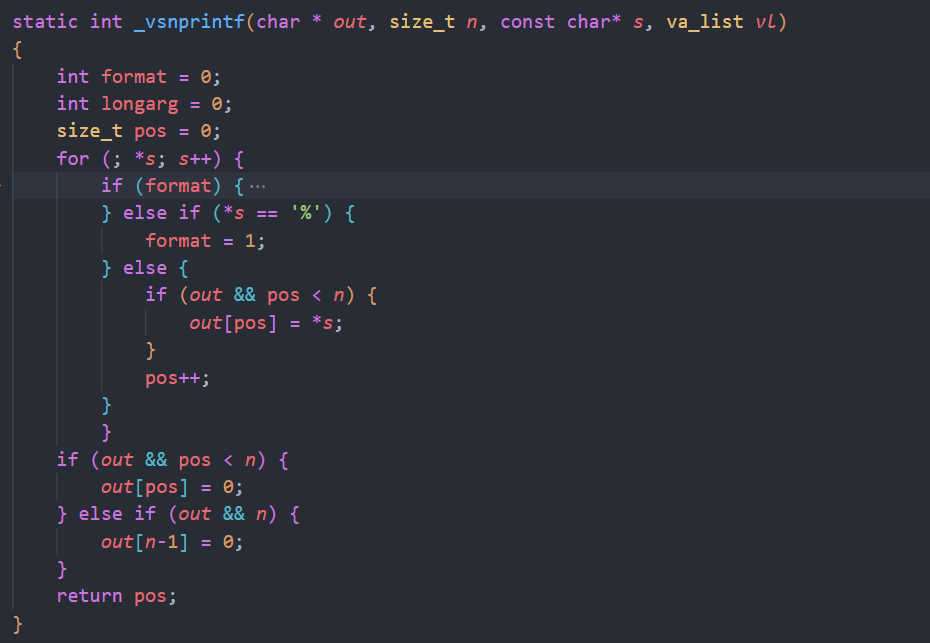
分析一下发现这里会返回printf函数第一个参数的长度,比如:printf("arg:%s","hello"),那么res的值就是"arg:%s"的长度即6。然后判断一下是否超过最大长度。然后再调用:
_vsnprintf(out_buf, res + 1, s, vl);
|
_vsnprintf就是用来对字符串进行格式化的,通过判断第一个参数里%的个数来确定可变参数的个数,详细的实现可以看上面代码。
main.c:比较简单,就是调用printf函数来输出
#include "os.h"
void os_main()
{
printf("hello timer os!");
}
|
Makefile:
SRCS_C = \
sbi.c \
main.c \
printf.c \
#加一行
|
3. 测试
timer@DESKTOP-JI9EVEH:~/quard-star$ ./build.sh
timer@DESKTOP-JI9EVEH:~/quard-star$ ./run.sh
|
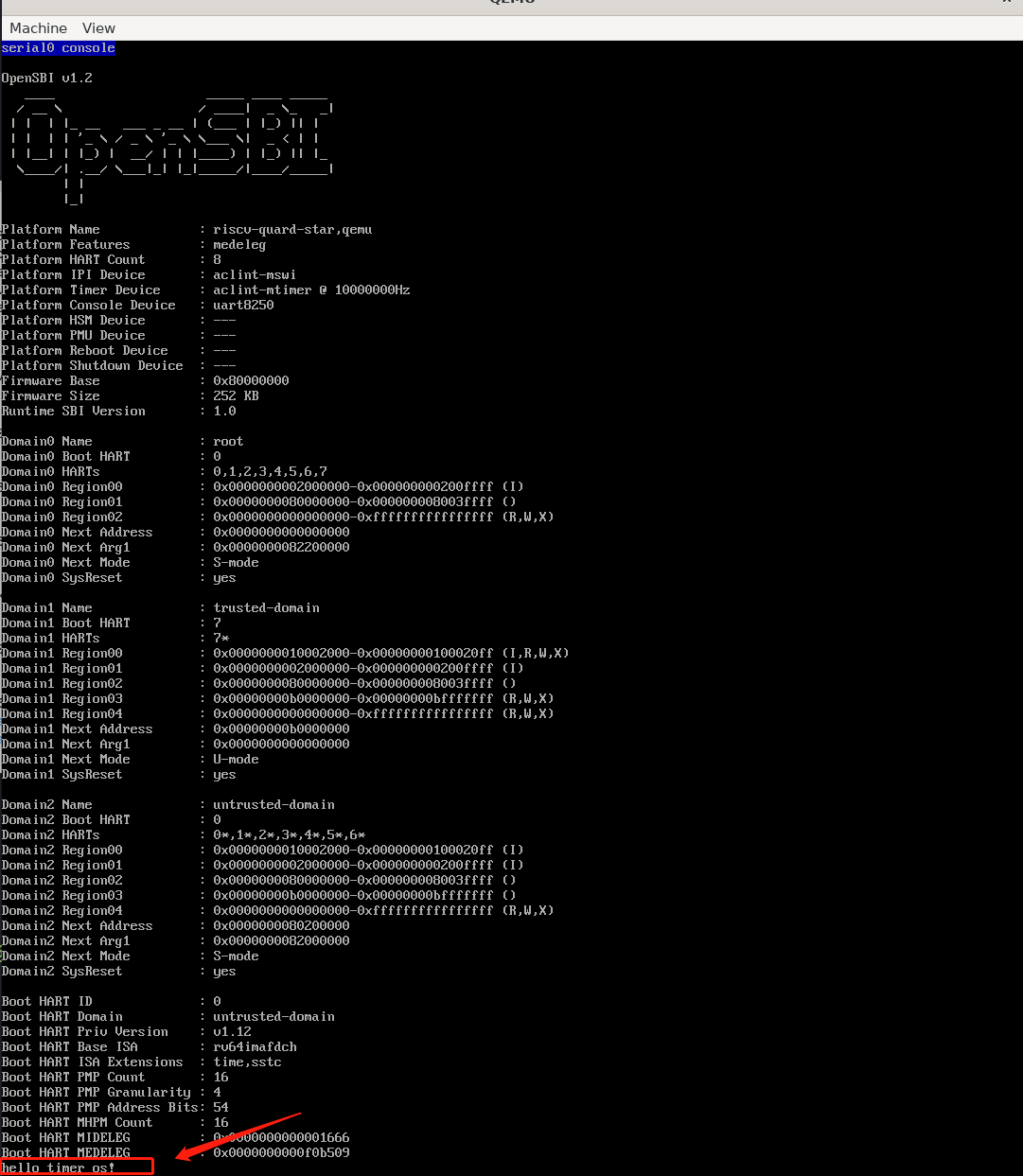
成功打印!
如果发现编译错误,在makefile里加一个编译命令:
CFLAGS = -nostdlib -fno-builtin -mcmodel=medany
|
参考链接















